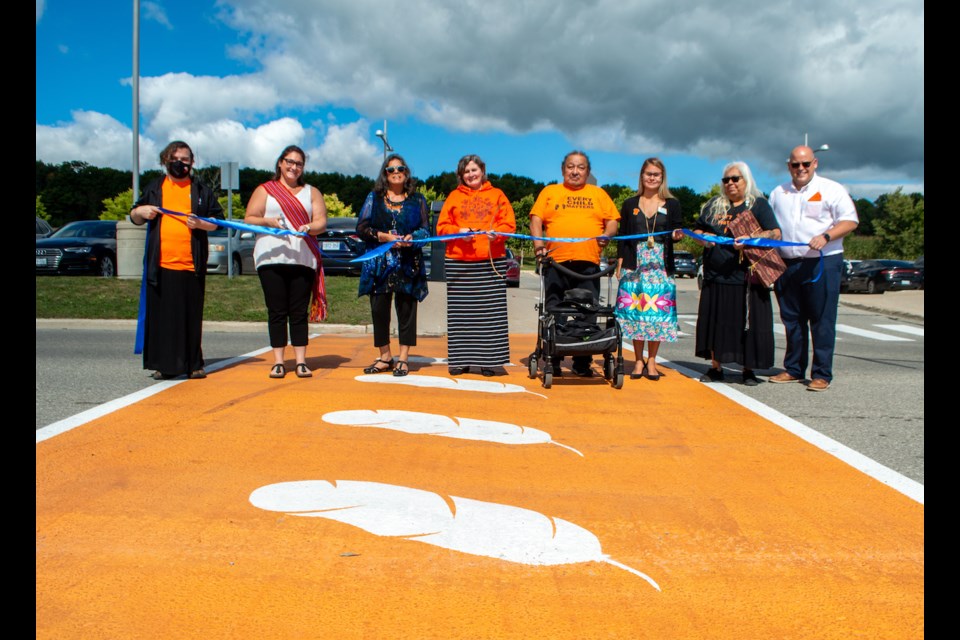Lakehead University’s Orillia campus has unveiled a new ‘Every Child Matters’ crosswalk.
Students, staff, and members of the community gathered on campus on Wednesday morning to raise a flag in recognition of truth and reconciliation and celebrate the new crosswalk that honours the Indigenous lives lost at and survivors of the 140 federally run residential schools in Canada.
Lakehead's interim principal, Dr. Linda Rodenburg, says the crosswalk will give students an opportunity each day to recommit to the reconciliation process.
“As all the students are coming in from the parking lot, they have an opportunity to take a moment to think about that,” she said.
It’s clear to Rodenburg that students are committed to being involved in conversations about truth and reconciliation.
“I see students every day going out of their way to walk across this,” she said.
During her daily walk across the crosswalk, Rodenburg herself has thought about the ongoing process of reconciliation and how the community must continue to be vigilant to make sure no child experiences the hurt of being taken away from their families.
“Lakehead University is committed to walking on that path to reconciliation alongside Indigenous peoples,” she said. “We are committed, and I am committed to being a part of the community that continues to work on ensuring that our campus is a welcoming place for Indigenous students, faculty, and staff.”
Dr. Cynthia Wesley-Esquimaux, Chair for Truth and Reconciliation in Canada for Lakehead University, says people around the country are finally stepping up to join the conversation.
“We got a lot of kids who aren’t doing so well across the country who need our support, love, and understanding,” she said.
Wesley-Esquimaux's parents are both residential school survivors; when she was raised in Toronto, she was often the only Indigenous student in her school.
“I can still remember how people would look at me and the names that they would call me,” she said. “It was horrible, and I quit school at 16.”
Wesley-Esquimaux decided to go back to school at 23 and would go on to earn her Ph.D.
“When I look around at what’s happening in our schools, universities, high schools ... they are learning something different today,” she said. “That means that the foundations of this country are strengthened.”
Ernie Sandy, a residential school survivor and Rama resident, offered Dr. Rodenburg sweet grass on Wednesday morning to show unity and togetherness.
“It’s a symbol of us walking into the future,” he said. “Not separately and not the way the government has separated us for a century.”
